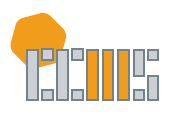Abstract / Synopsis
Research suggests that mathematical creativity often results from extended periods of mathematical activity and reflection based on the use of deep and flexible content knowledge [14, 15]. This implies that instruction can influence creativity. However, for teaching to foster creativity in mathematics, there should be purposefully designed instructional tasks. It is doubtful that routine, mechanical exercises would foster creativity. Moreover, mathematical creativity may neither be explicitly promoted, nor fully appreciated, by students when a learning space involves only problem solving, even if the problems are challenging and engaging. For students to get an authentic sense of mathematics and to develop habits that are more likely to lead to an appreciation of mathematical creativity, they need to experience both problem solving and problem posing, as both are “essential aspects of mathematical activity” [22, page 31].
DOI
10.5642/jhummath.202002.08
Recommended Citation
Deborah Moore-Russo, Amanda A. Simmons & Michael J. Tulino, "A Study of Problem Posing as a Means to Help Mathematics Teachers Foster Creativity," Journal of Humanistic Mathematics, Volume 10 Issue 2 (July 2020), pages 129-156. DOI: 10.5642/jhummath.202002.08. Available at: https://scholarship.claremont.edu/jhm/vol10/iss2/8
Terms of Use & License Information
Included in
Curriculum and Instruction Commons, Mathematics Commons, Science and Mathematics Education Commons, Teacher Education and Professional Development Commons
